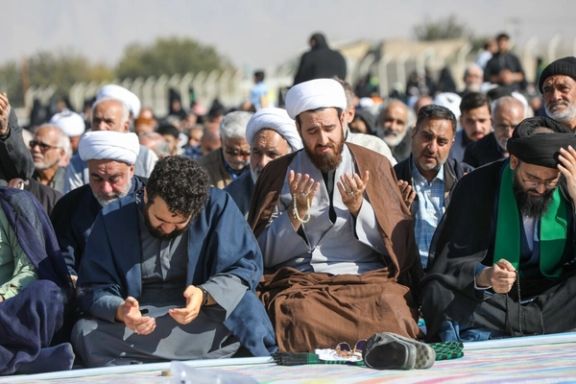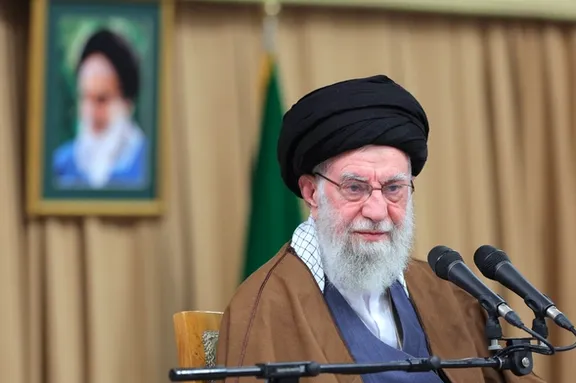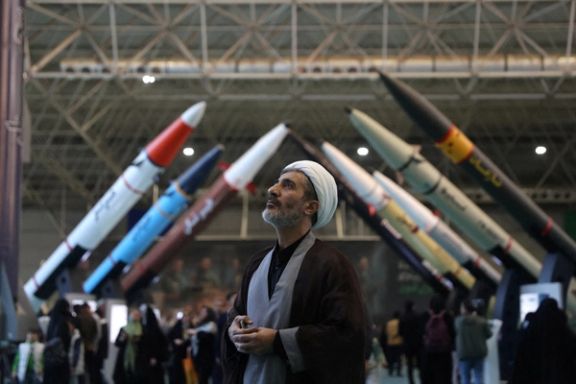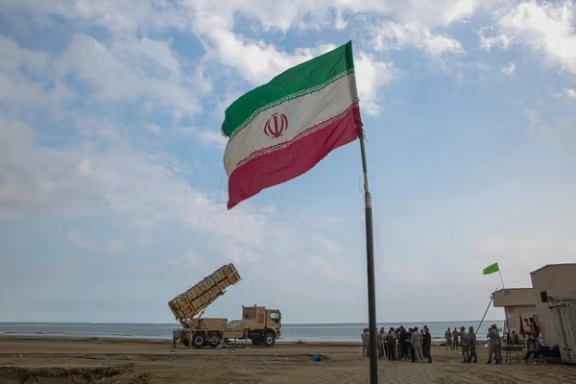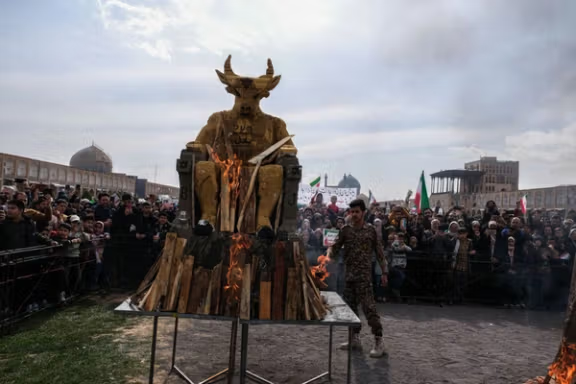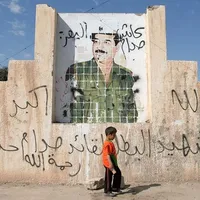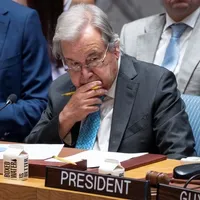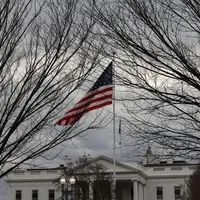Grand Ayatollah Abdollah Javadi Amoli, a Shi'ite religious authority based in the holy city of Qom, said during his weekly ethics session on Wednesday that Islamic tradition recommends the so-called salat al-istisqa, which he described as a prayer for water in all forms, not just rain.
“This prayer, meaning asking for water, is not only for requesting rain but also for the abundance of water in wells, springs, and underground sources,” he said.
Multiple cities in Iran have held or scheduled rain-seeking prayers this week in response to a dramatic drop in rainfall and depleted river and reservoir levels.
In Tehran, the prayer will be held on Friday at 15:00 at the shrine of Imamzadeh Saleh Shrine in north Tehran, led by Ayatollah Seyyed Jamal al‑Din Din Parvar according to state media reports.
In Qom in central Iran the ceremony is scheduled for Friday morning at the Grand Mosque, as announced by provincial officials.
In Mashhad, in Khorasan Razavi Province, the country’s second-largest city and a major religious center with around four million residents, the prayer ceremony was held on Thursday.
Last week, the head of the Mashhad Water and Wastewater Company said water reserves in the city’s dams have now dropped to below 3 percent of capacity.
In Qazvin Province, the prayer ritual was performed on Monday, according to IRGC-affiliated Tasnim.
“The prayer for rain is an opportunity for hearts to return to God, to repent for shortcomings, and to recall hope and humility. When people pray with pure hearts and unity, divine mercy revives the earth,” Tasnim quoted Ayatollah Hossein Mozaffari, the Friday Prayer Leader of Qazvin, as saying about the ceremony.
Iran is now facing one of its most severe shortages in decades, with major reservoirs and dams nearing depletion.
President Masoud Pezeshkian said this month that if rain does not arrive before December, water rationing in Tehran would be needed.
Officials say the city of more than 10 million may be rendered uninhabitable if the drought persists. "Even if we do ration and it still does not rain, then we will have no water at all. (Residents) have to evacuate Tehran," Pezeshkian declared in a speech.
Last week, Iranian officials warned that water rationing could soon begin in several major cities, including Tehran, Mashhad and Isfahan, as reservoir levels fall to their lowest in decades amid a sixth consecutive year of severe drought.
Experts say the crisis is the culmination of decades of environmental mismanagement and overexploitation of resources.
Despite repeated warnings from experts over the years, Iran’s water management system has focused on building dams and drilling deep wells instead of investing in and maintaining infrastructure, often blaming the crisis solely on declining rainfall.
